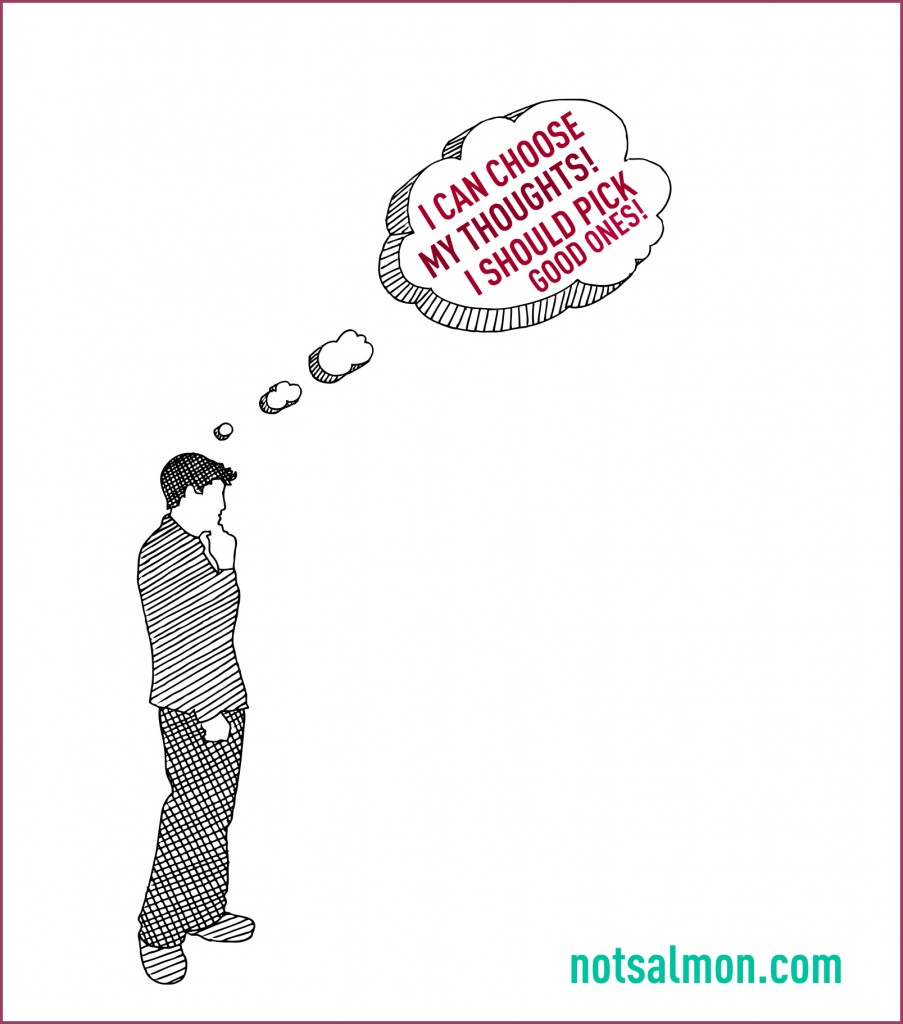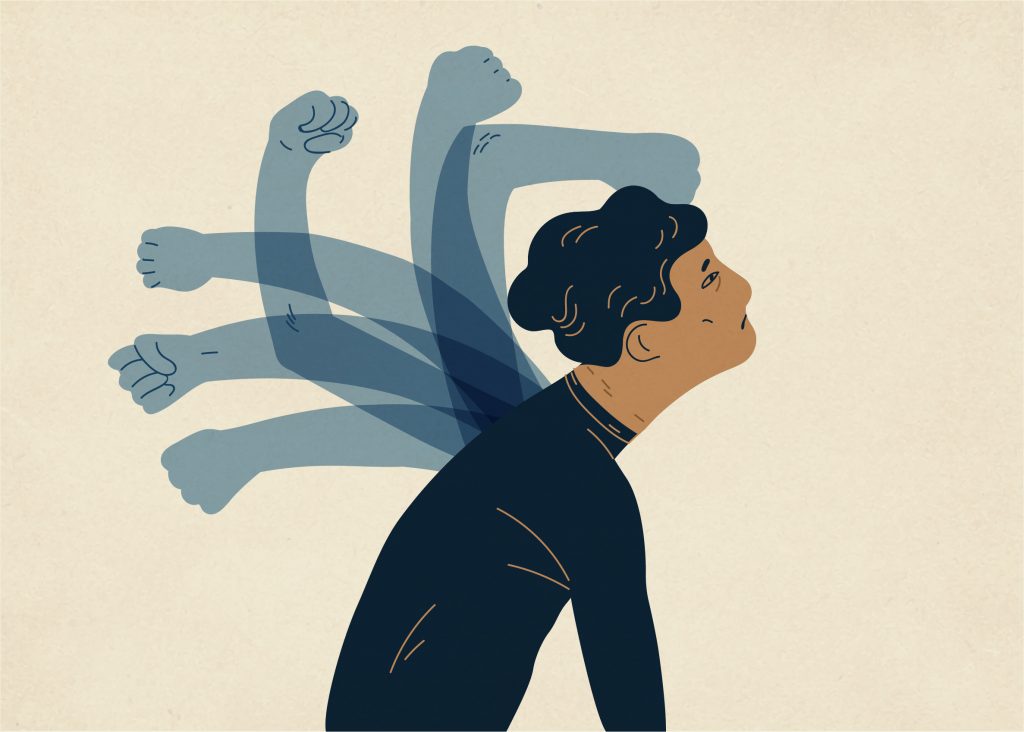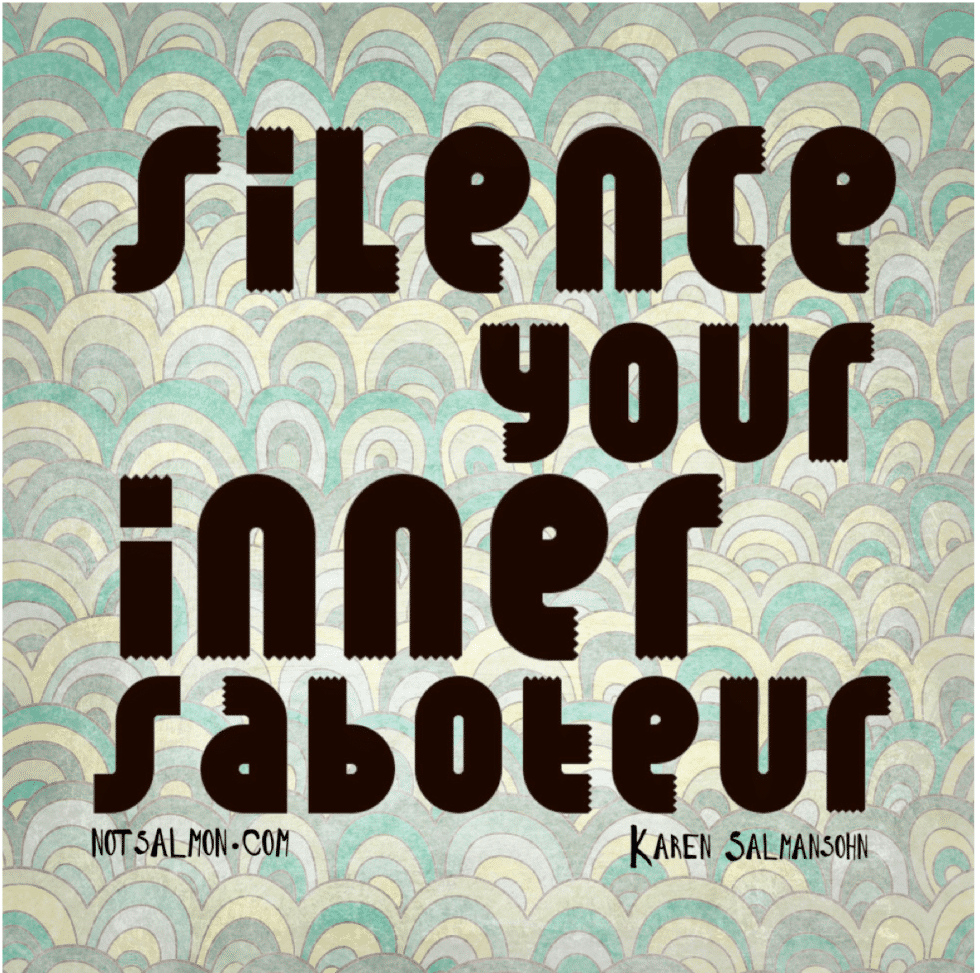
Want to know why you self sabotage happiness and how to stop pursuing what’s called Masochistic Equilibrium? Learn the 5 steps to stop limiting your joy, love and success!
Note: The following is an excerpt from my popular video course: Broken Heart Recovery. The information applies to all aspects of life – not just love.
Confession time: For many years I used to be what I call an “enterpainer.” I loved to entertain friends with my pain, sharing amusing stories full of woes, crazy makers and miffed-ness.
One day I discovered a psychological concept which really woke me up—and motivated me to change my “enterpaining ways” which were sabotaging my happiness.
I’m excited to share this concept with you, because I believe it might motivate you as well.
The #1 reason you self sabotage happiness:
- a concept called “Masochistic equilibrium.”
I found out this term represents a truly important psychological theory on self sabotage – one which clearly explains how and why sometimes a person’s “comfort zone” might actually be to stay in “discomfort.”
Here’s why masochistic equilibrium leads to self sabotaging happiness…
- As a child you learned habits on love and happiness from your parents.
- If you learned that love comes with yelling and insults, then being in a relationship with too much peace and too many compliments might actually inspire anxiety.
- As a result, snagging an abundance of joy might then also trigger you to self sabotage happiness – in order to maintain that “masochistic equilibrium” which you learned in your childhood.
- Or you might simply choose scenarios from the get-go which bring you lower levels of love and joy.
 Basically, you grew up feeling comfy with only a certain level of happiness.
Basically, you grew up feeling comfy with only a certain level of happiness.
- Maybe you grew up used to 80% happiness – 20% pain.
- Or only 50% happiness – 50% pain.
- Perhaps even merely 17% happiness – 83% pain.
When this happiness concentration shifts – even if it’s upwards to greater happiness – you will start to feel twitchy – because this new zone feels so unfamiliar.
As a result you might instinctively want to do something to self sabotage happiness, so you can shift your happiness concentration back down, down, down, down, down to your familiar zone – your “masochistic equilibrium.”
How do you break free from the shackles of “masochistic equilibrium”?
You must 100% accept that you do a lot of the goofier things you do because of negative childhood brainwashing.
Or… your negative brainwashing could also come from trauma and challenges you experienced later in life.
I call this “brain washing” the expression “brain dirtying” – because your lens to the world gets dirtied with negative beliefs that you must wipe clean. Then, and only then, can you clearly see new paths to getting the life you desire and deserve.
One of the best ways to wipe your brain dirtied lens clean:
- Seek alternate positive lessons in past pain.
I call this possessing “pain-a-ramic” vision.
- It’s when you see the problems of your past with a full 180-degree positive perspective.
 How?
How?
- Relax your mind. Breathe deeply. Enter a meditative state.
- Dare to think about your most painful incidents.
- Force yourself to answer the following: What is a positive and/or lucky way to learn from the past and thereby attain some gain in my pain?List 5 positive lessons—so you can start to forgive your past—and move forward in a more positive direction.
After you get done blaming your past for present pain, you must also accept some responsibility.
After all, you’ve been an adult for a while now.
It’s time to say, “Enough already!” – and show your cerebrum who’s boss – so you can stop allowing painful misadventures to continue!
Here’s 5 steps to stop self sabotaging your happiness
Step 1:
Next time you’re tempted to self sabotage and settle for a pattern of pain, repeat the following mantra:
- “I am not my past behavior. I’m not my past failures. Nor am I how others have at one time treated me. I am only who I think I am right now in this moment. I’m only what I do right now in this moment.”
Step 2:
Do you self sabotage happiness in love?
- If so, Find examples of consistently happy, loving couples.
- Spend as much time as possible with them so you can start to shift your belief system to what “normal love” and “normal happiness” are.
Do you self sabotage your career, money, work fulfillment, etc?
- Spend more time with successful people.
- Apply this strategy with all the areas you might be self sabotaging your happiness.
Over time, you will begin to view highly positive situations as examples for your new normal.
The more you witness positive examples of love, success and joy, the more opportunity you will have to change your belief system about life.
As a result, you will start to change your level of “masochistic equilibrium.” Soon you won’t want to self sabotage your happiness anymore.
Step 3:
Talk with any family members or close friends you feel that you can be open with about this concept of self sabotage of happiness.
You’ll find that the more you can be honest about repressed feelings and share them, the less troublemaking your subconscious will need to self sabotage happiness.
Step 4:
Recognize that you have triggers that remind you of past pain and might thereby create a downward spiral of negative thinking and behavior.
Clear your life of these depressing triggers.
For example…
You might want to remove items from your home that your ex-spouse has given you.
Instead, get “trigger happy” and focus on positive triggers that remind you of all your happy relationships.
An example…
You might want to put up photos in your home that represent happy times, happy people, or happy philosophies you want to live by.
Step 5:
Finally, there’s an added sneaky reason why painful self sabotage patterns form: a theory à la Carl Jung.
He believed that our lives need meaning and purpose.
If we don’t have meaning and purpose, we acquire a bad habit in order to create drama and excitement. Our goal is to feel like there’s something interesting and entertaining happening in our life. Even if it’s a bad exciting thing.
Jung’s name for these patterns of “enterpaining” situations was “low-level spiritual quests.”
You can stop self sabotage by creating a high level spiritual quest!
Yes, you can more readily dump negative patterns of “low-level spiritual quests” by developing “high-level spiritual quests”—a driving positive force that drives you forward.
For example…
It’s easier to dump negative patterns in love (which give you drama and “enterpaining stories” to tell), if you develop an exciting hobby or passion-project to serve as your “high-level spiritual quest” (which then gives you excitement and happy entertaining stories to tell).
My examples…
Personally, I discovered lots of reading and writing of books, which then filled my life with far more entertaining things to talk about, and lessened my need for “enterpainment.”
But you might consider taking up cycling, skydiving, painting, scuba diving, or international cooking. You might start training for a marathon. Or plan a trip to some place exotic.
High-level spiritual quests can show up in a variety of forms.
Who knows? Maybe in the process of exploring a new passion or adventure, you’ll meet an incredibly wonderful person (or people), and you’ll have some of your most entertaining and happy stories ever told to share!
Get tools to stop self sabotaging in love!
The above was an excerpt from my popular video course: Broken Heart Recovery. Join the many thousands of people who are using & loving these psychological tools to repair past conditioning! Heal, grow and move on from painful love patterns! Learn more now – here!
P.S. Before you zip off to your next Internet pit stop, check out these 2 game changers below - that could dramatically upscale your life.
1. Check Out My Book On Enjoying A Well-Lived Life: It’s called "Your To Die For Life: How to Maximize Joy and Minimize Regret Before Your Time Runs Out." Think of it as your life’s manual to cranking up the volume on joy, meaning, and connection. Learn more here.
2. Life Review Therapy - What if you could get a clear picture of where you are versus where you want to be, and find out exactly why you’re not there yet? That’s what Life Review Therapy is all about.. If you’re serious about transforming your life, let’s talk. Learn more HERE.
Think happier. Think calmer.
Think about subscribing for free weekly tools here.
No SPAM, ever! Read the Privacy Policy for more information.
One last step!
Please go to your inbox and click the confirmation link we just emailed you so you can start to get your free weekly NotSalmon Happiness Tools! Plus, you’ll immediately receive a chunklette of Karen’s bestselling Bounce Back Book!



 Basically, you grew up feeling comfy with only a certain level of happiness.
Basically, you grew up feeling comfy with only a certain level of happiness. How?
How?